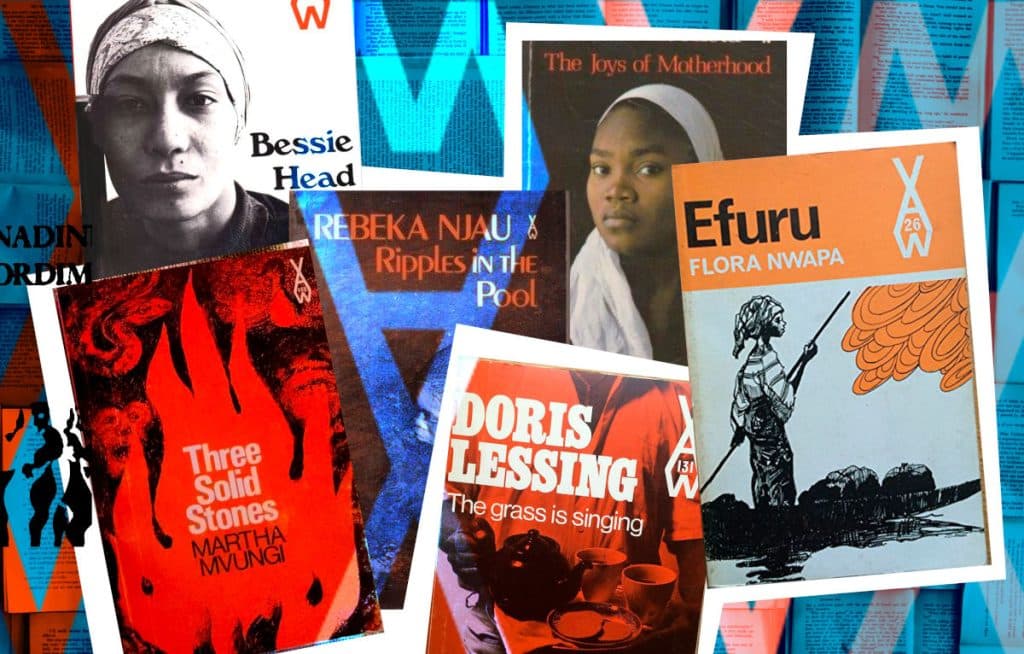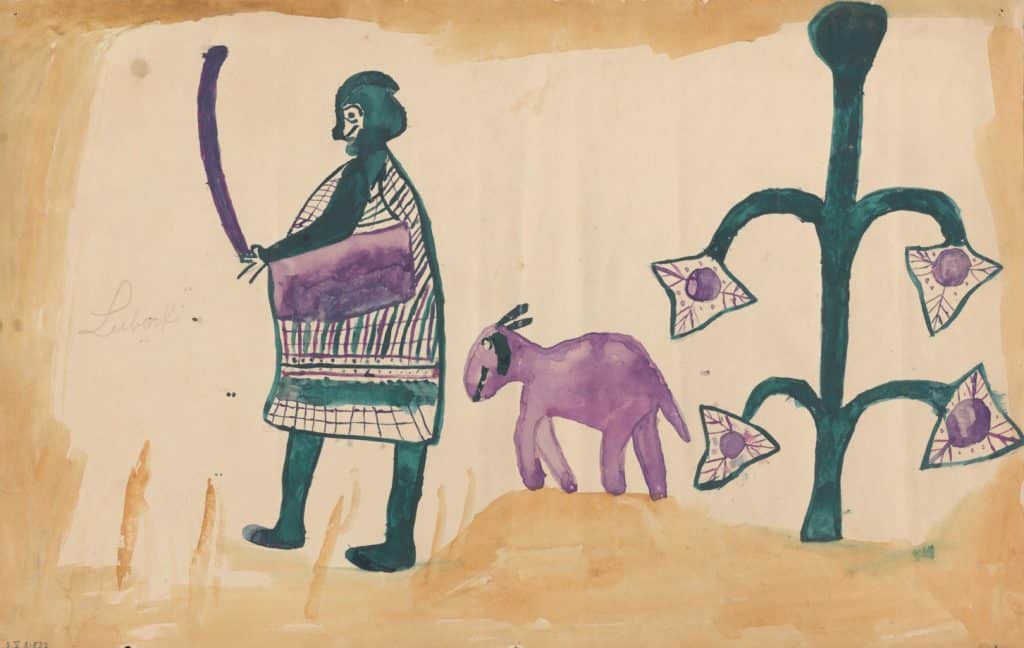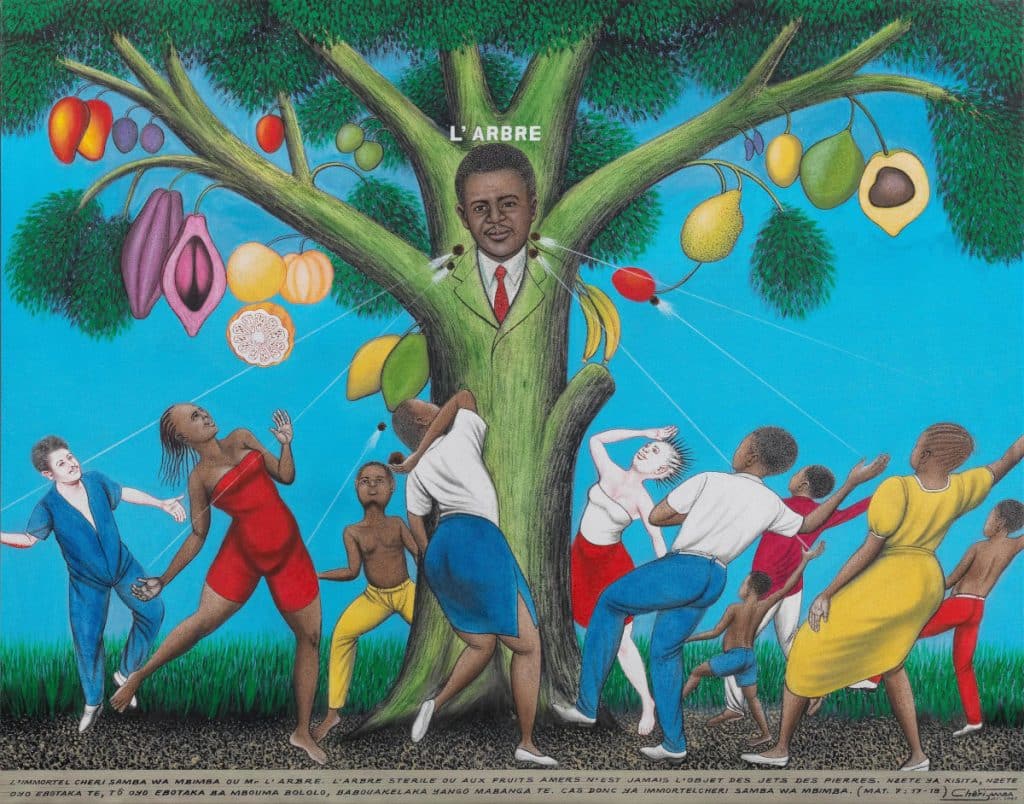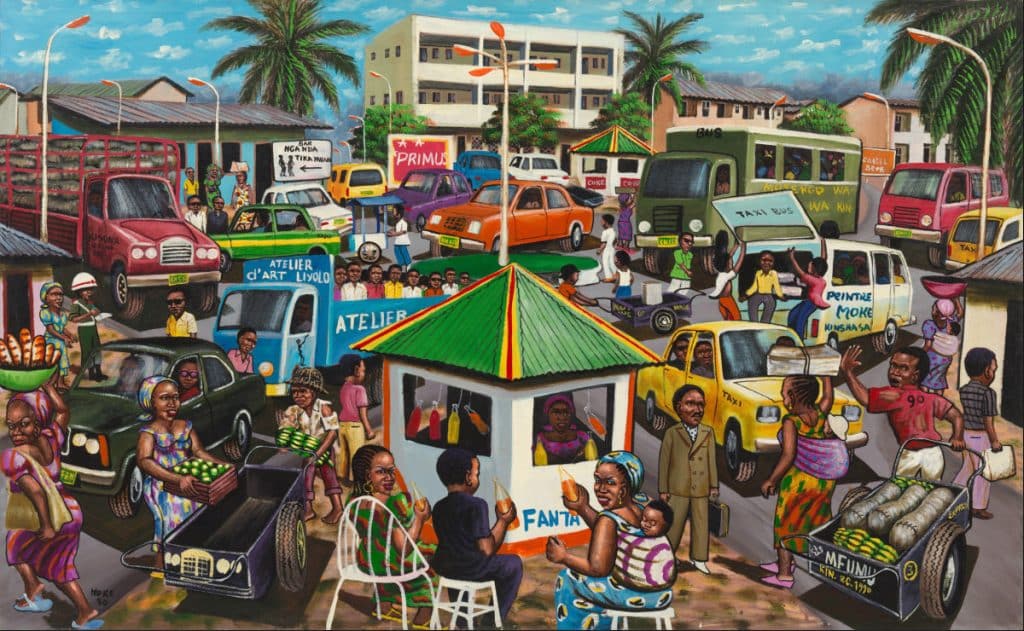Dear friends,
Greetings from the desk of Tricontinental: Institute for Social Research.
In 1962, Florence Nwanzuruahu Nkiru Nwapa (1931—1993), mostly known as Flora Nwapa, sent a book manuscript to the Nigerian writer Chinua Achebe (1930—2013). Four years earlier, Achebe, at the tender age of twenty-eight, had published his landmark novel Things Fall Apart with Heinemann. The novel arrived in Heinemann’s London office as the decolonisation movement began to change the shape of the African continent (Ghana won its independence in 1957, three years after Nigeria—both countries with an English-speaking population, however small, that used Heinemann’s science and English books in their education system). Achebe’s book inspired Heinemann’s Alan Hill to recruit Evander ‘Van’ Milne from Nelson Publishers (where Milne had published the autobiography of Kwame Nkrumah in 1957). Both Hill and Milne had left-wing politics, which is why Heinemann’s African Writers Series (AWS) published the work of Nkrumah, Kenneth Kaunda, and other national liberation leaders. By the time Flora Nwapa sent her book to Achebe, he was working as an advisor to the AWS and sent her money to mail her manuscript to London.
Heinemann published Nwapa’s book Efuru in 1966, making it one of the first English-language novels by an African woman to be published and the twenty-sixth in the series. The next book by a woman, again Nwapa, was Idu (1970), the fifty-sixth in the series. The women authors in this landmark series of African fiction were stunning both for their brilliance and their rarity:
No. 100: Bessie Head (South Africa), Maru (1972)
No. 131: Doris Lessing (Zimbabwe), The Grass is Singing (1973)
No. 149: Bessie Head (South Africa), A Question of Power (1974)
No. 159: Martha Mvungi (Tanzania), Three Solid Stones (1975)
No. 177: Nadine Gordimer (South Africa). Some Monday for Sure (1976)
No. 182: Bessie Head (South Africa), The Collector of Treasures (1977)
No. 203: Rebeka Njau (Kenya), Ripples in the Pool (1978)
No. 227: Buchi Emecheta (Nigeria), The Joys of Motherhood (1979)
No. 220: Bessie Head (South Africa), Serowe: Village of the Rain Wind (1981)
No. 248: Mariama Bâ (Senegal), So Long a Letter (1989)

The former French and Portuguese colonies were no different in this regard. Aminata Sow Fall of Senegal led the way with Le revenant (The Ghost, Dakar: Nouvelles Editions Africaines, c. 1976) in French while Paulina Chiziane of Mozambique led the way in Portuguese with Balada de Amor ao Vento (Love Ballad to the Wind, Maputo: Associação dos Escritores Moçambicanos, 1990) alongside Filomena Embaló of Guinea-Bissau with Tiara (Tiara, Lisboa: Instituto Camões, 1999). Each of these books is grounded in the struggle for freedom.
Meanwhile, Mabel Dove Danquah and Efua Sutherland pioneered journalism in Ghana, with Danquah running Accra Evening News in 1951 and Sutherland running the literary magazine Okyeame and founding the Ghana Society of Writers in 1957 (Sutherland also created the Ghana Experimental Players and Ghana Drama Studio in 1961). In South Africa, Noni Jabavu published her memoir Drawn in Colour: African Contrasts with the London-based publisher John Murray in 1960 while Miriam Tlali published her fabulous novel Between Two Worlds (originally released as Muriel at Metropolitan) with Ravan Press in 1975. In Kenya, Grace Ogot became the first woman to be published by the East African Publishing House with her novel The Promised Land (1966) while in Nigeria Zulu Sofola produced her play The Deer and The Hunters Pearl (1969). Egypt’s Nawal El Saadawi, Morocco’s Khanata Banuna, and Algeria’s Assia Djebar broke ground for many other women writing in Arabic. There is a rich tradition of women writing on the African continent.

Antoinette Lubaki (DRC), Sans titre (Untitled), c. 1929.
That is precisely why Inkani Books, affiliated with Tricontinental: Institute for Social Research, has decided to offer an annual prize for a non-fiction book manuscript written by a woman (whether cis- or transgender). As our editor at Inkani Books Efemia Chela wrote in a Tricontinental Pan-Africa newsletter earlier this year, ‘This prize is not just an accolade; it is a reclamation of space, a declaration that African revolutionary women’s narratives will no longer be sidelined’.
The prize is named after the great African revolutionary Andrée Blouin (1921—1986), who was a close associate of Patrice Lumumba (even co-writing his independence speech delivered in June 1960). She was radicalised when her son René died of malaria at age two after being denied life-saving quinine in a French colonial hospital, where the medication he needed was designated for Europeans only. In her autobiography My Country, Africa (1983), she wrote of colonialism and the hideousness of colonial normalcy: ‘I understood at last that it was no longer a matter of my own maligned fate but a system of evil whose tentacles reached into every phase of African life’.
While establishing a reputation as an outspoken journalist, Blouin was invited by Antoine Gizenga (later the prime minister of the Democratic Republic of the Congo) to build the Mouvement Féminin pour la Solidarité Africaine (Women’s Movement for African Solidarity). Blouin found that the Congo, that ‘extraordinary reservoir of minerals’, was treated as Belgium’s own personal vault. Her association with Lumumba’s movement for freedom introduced her to kindred spirits and kindled a deep sense of joy in the struggle. The drab realities of colonialism paled in significance to the brightness of national liberation.

Chéri Samba (DRC), L’Arbre (The Tree), 1987.
When Blouin published her autobiography in 1983, it was not accorded the reception it deserved. Those were difficult times for Pan-Africanism and for the Third World: the dreams of national liberation had largely been crushed by coups (against Lumumba in 1961 and Nkrumah in 1966), the debt crisis (almost all African countries struggled to service their ballooning debts), and the emergence of national bourgeoisies that seemed more content to collaborate with international mining companies than to build their own economies. The only bright spark in this period came from Upper Volta, where Thomas Sankara took power in 1983, changed the name of his country to Burkina Faso (meaning ‘land of upright people’), and pushed a revived agenda that would have made Lumumba proud (we do not know how Blouin reacted to the news of this development in the Sahel). Had Blouin’s autobiography—published the same year that Sankara took power—been linked to the dynamism of Burkina Faso, there might have been a renewal of interest in the historical line that went from Blouin to Sankara, who put women’s emancipation at the centre of his country’s revolutionary project. Sadly, that thread was not properly strengthened.
Over the past few years, however, there has been an important recovery of Blouin’s heritage. Here are some of the contours of that revival:
-
In 2019, in Kinshasa (Democratic Republic of the Congo), a number of young people created the Centre Culturel Andrée Blouin to hold events and train Congolese youth in the history and possibilities of Pan-Africanism.
-
In 2023, Tricontinental: Institute for Social Research partnered with the Centre Culturel Andrée Blouin, the Centre for Research on the Congo-Kinshasa (CERECK), and Likambo Ya Mabele (Land Sovereignty Movement) to research and write dossier no. 77, The Congolese Fight for Their Own Wealth (published in June 2024).
-
In 2024, award-winning director Johan Grimonprez placed Blouin’s story at the centre of his Oscar-nominated film Soundtrack to a Coup d’État.
-
In 2025, Verso Books republished My Country, Africa with an epilogue from Blouin’s daughter Eve.
-
Next year, Inkani Books will publish Ludo Martens’ gripping story of the rebellion led by Blouin’s comrade Pierre Mulele.
We hope very much that the annual prize will further uplift non-fiction writing by African women along Blouin’s lineage and that its existence will increase interest in women such as Blouin, Josie Mpama, Ruth First, and others who gave their lives to the struggle for Pan-African emancipation.

Moké (Democratic Republic of the Congo), Kinshasa at Noon, 1980.
Many of these women, like Blouin, were institution builders. Nwapa, for instance, was not only a novelist but a publisher who founded Tana Press in 1977 to ensure that books written on the continent find readers on the continent. National liberation movements also set up their own publishing houses, which impacted literacy campaigns in their countries, as we showed in our study on political education in Guinea-Bissau. There is a rich history of African book publishing that merits further study, including publishers such as Alioune Diop (Présence Africaine, 1947), D. B. Oni (Onibonoje Press, 1958), Engelbert Mveng (Editions CLE, 1963), Henry Chakava, Taban Lo Liyong, and Ngũgĩ wa Thiong’o (East African Publishing House, 1965), Margaret Busby (Allison and Busby, 1967), Mothobis Mutloatse and Miriam Tlali (Skotaville Publishers, 1982), Irene Staunton and Hugh Lewin (Baobab Books, 1987), and Walter Bgoya (founder of Mkuki na Nyota, 1981). Their work inspires Inkani Books.
Please spread the word about the Andrée Blouin Prize, applications due 30 April deadline.
Warmly,
Vijay

